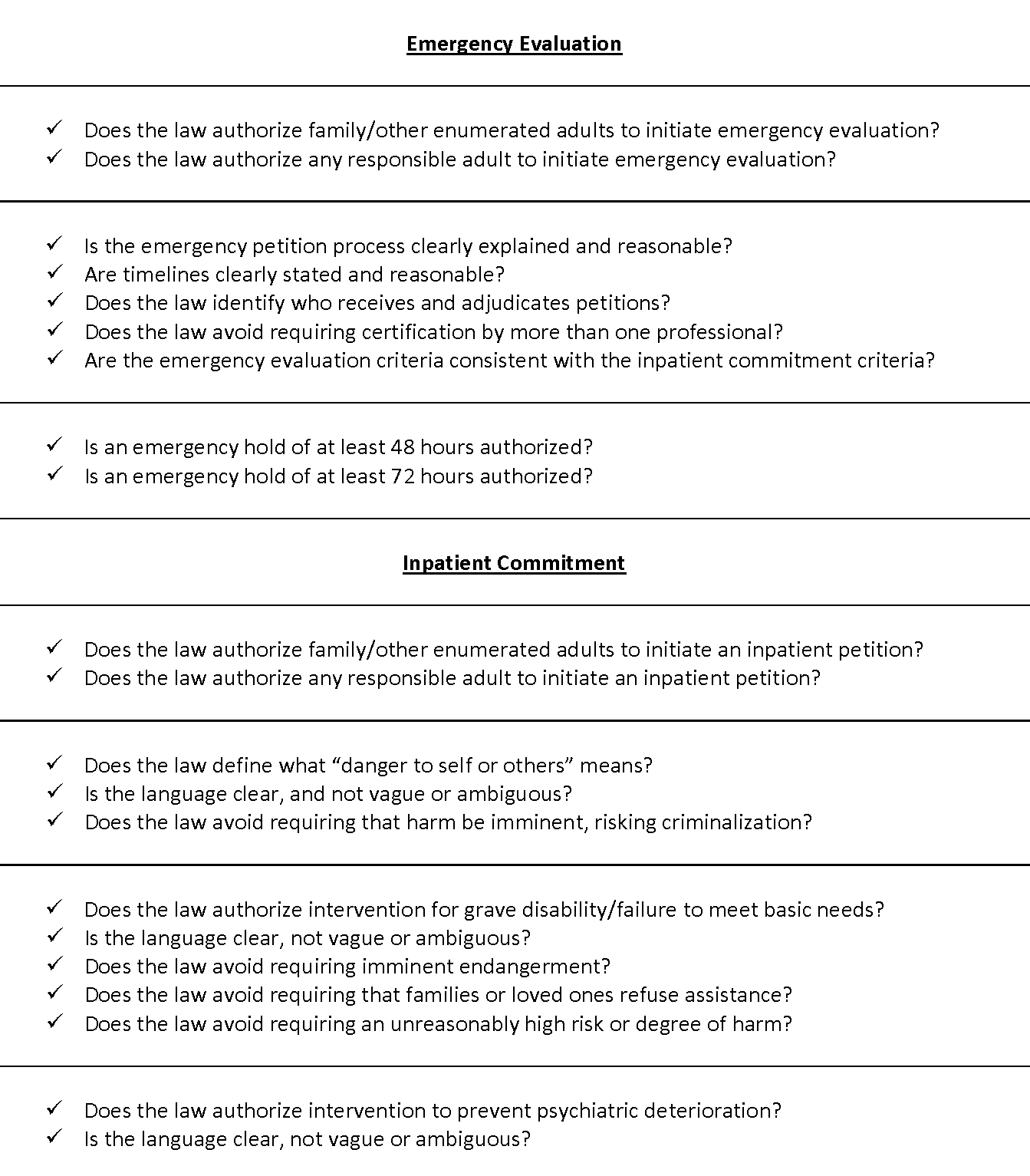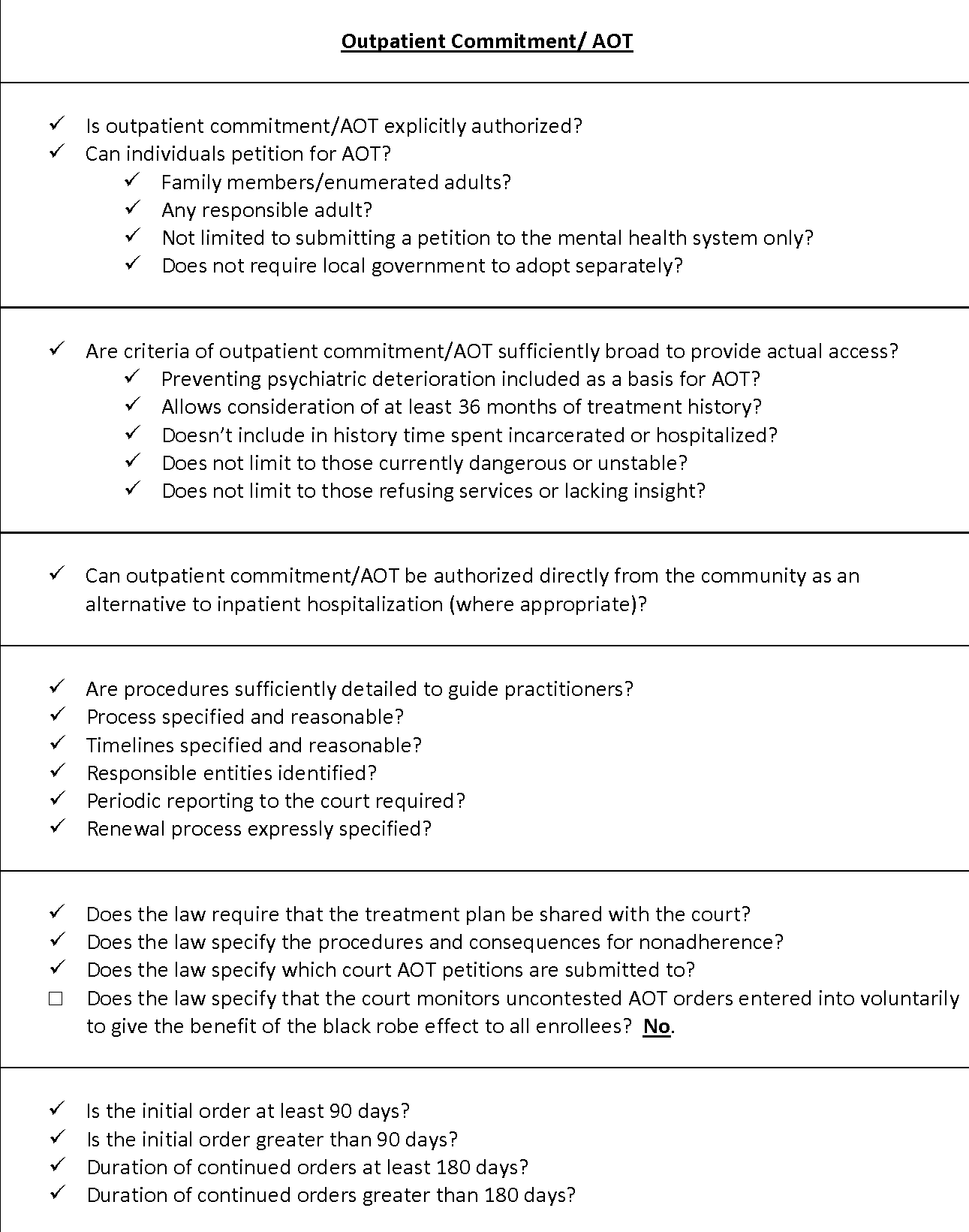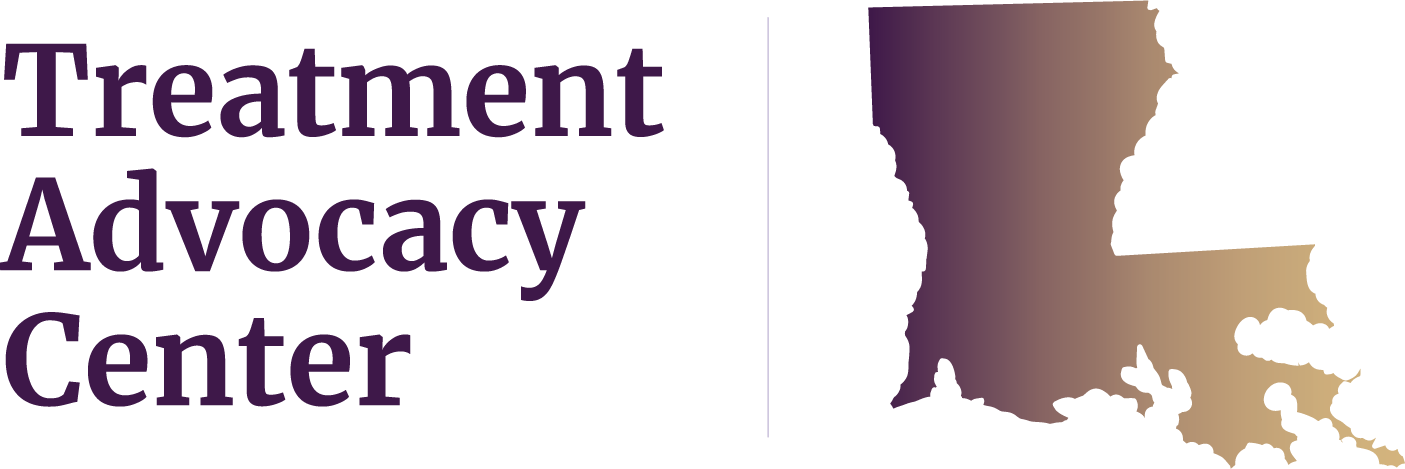Family Resources in Resources in Louisiana
- Louisiana Office of Behavioral Health (ldh.la.gov) Resources and contacts
- Mental Health Resources in Louisiana (rtor.org) Nonprofit provides an online form for personalized assistance from a resource specialist
- City of New Orleans Health Department (nola.gov) Information about assisted outpatient treatment and other behavioral health services
- NAMI Louisiana (namilouisiana.org) Support groups, training, information
- Disability Rights Louisiana (disabilityrightsla.org) Protection and advocacy for individuals with disabilities
- Homeless Information: Louisiana | U.S. Department of Housing and Urban Development (hud.gov/states/louisiana) Find help hotlines, financial assistance, foodbanks and shelters by city or county
- Louisiana Inmate Locater (doc.louisiana.gov) Locate a prison inmate by ID or case number
- Louisiana State Bar Association (lsba.org) Legal assistance
How many people in Louisiana have SMI?
individuals with severe mental illness.
individuals with SMI who receive treatment in a given year.
of the adult population is estimated living with a SMI in the United States.
State psychiatric hospital beds in Louisiana
2023 total beds: 689
- Civil beds: 450
- Forensic beds: 239
2023 beds per 100,000 people: 15
Click here for more information about state psychiatric hospital beds in Louisiana.
A minimum of 50 beds per 100,000 people is considered necessary to provide minimally adequate treatment for individuals with severe mental illness. Louisiana fails to meet this minimum standard.
For Additional Information
Data is a powerful tool to advocate for change. Curious about a specific data point in your state? Reach out to us at ORPA@treatmentadvocacycenter.org
Fast Facts on SMI in Louisiana
Deinstitutionalization, outdated treatment laws, discriminatory Medicaid funding practices, and the prolonged failure by states to fund their mental health systems drive those in need of care into the criminal justice and corrections systems.
21%
12,160
689
18 to 1
2021 Louisiana State Mental Health Agency's expenditures
Every state receives block grant funding from the federal government to provide mental health services to their community. Below is some information about how these dollars are spent and compares to other state spending.
$882,517,485
21%
$21,394
2.5%
Louisiana's Treatment Laws
LA. REV. STAT. ANN. § 28:53 (A) (1) A person who has a mental illness or a person who is suffering from a substance-related or addictive disorder may be admitted and detained at a treatment facility for observation, diagnosis, and treatment for a period not to exceed fifteen days under an emergency certificate. (2) A person suffering from a substance-related or addictive disorder may be detained at a treatment facility for one additional period, not to exceed fifteen days, provided that a second emergency certificate is executed. A second certificate may be executed only if and when a physician at the treatment facility and any other physician have examined the detained person within seventy-two hours prior to the termination of the initial fifteen-day period and certified in writing on the second certificate that the person remains dangerous to himself or others or gravely disabled, and that his condition is likely to improve during the extended period. The director shall inform the patient of the execution of the second certificate, the length of the extended period, and the specific reasons therefor, and shall also give notice of the same to the patient’s nearest relative or other designated responsible party initially notified pursuant to Subsection F of this Section. (B) (1) Any physician licensed or permitted by the Louisiana State Board of Medical Examiners, physician assistant when acting in accordance with their respective clinical practice guidelines, psychiatric mental health nurse practitioner, other nurse practitioner who acts in accordance with a collaborative practice agreement and receives verbal approval for executing the certificate from his collaborating physician, or psychologist may execute an emergency certificate only after an actual examination of a person alleged to have a mental illness or be suffering from a substance-related or addictive disorder who is determined to be in need of immediate care and treatment in a treatment facility because the examining physician, physician assistant when acting in accordance with their respective clinical practice guidelines, psychiatric mental health nurse practitioner, other nurse practitioner who acts in accordance with a collaborative practice agreement and receives verbal approval for executing the certificate from his collaborating physician, or psychologist determines the person to be dangerous to self or others or to be gravely disabled. The actual examination of the person by a psychiatrist or psychiatric mental health nurse practitioner may be conducted by telehealth utilizing video conferencing technology provided that a licensed healthcare professional who can adequately and accurately assist with obtaining any necessary information including but not limited to the information listed in Paragraph (4) of this Subsection shall be in the examination room with the patient at the time of the video conference. A patient examined in such a manner shall be medically cleared prior to admission to a mental health treatment facility. Failure to conduct an examination prior to the execution of the certificate will be evidence of gross negligence. LA. REV. STAT. ANN.§ 28:53.2(A). Any parish coroner or judge of a court of competent jurisdiction may order a person to be taken into protective custody and transported to a treatment facility or the office of the coroner for immediate examination when a peace officer or other credible person executes a statement under private signature specifying that, to the best of his knowledge and belief, the person has a mental illness or is suffering from a substance-related or addictive disorder and is in need of immediate treatment to protect the person or others from physical harm. LA. REV. STAT. ANN. § 28:54(D)(3). If the respondent refuses to be examined by the court-appointed physician or medical psychologist as herein provided, or if the judge, after reviewing the petition and an affidavit filed pursuant to R.S. 28:53.2 or the report of the treating physician or medical psychologist or the court-appointed physician or medical psychologist, finds that the respondent has a mental illness or is suffering from a substance-related or addictive disorder and is in need of immediate hospitalization to protect the person or others from physical harm, or that the respondent’s condition may be markedly worsened by delay, then the court may issue a court order for custody of the respondent, and a peace officer shall deliver the respondent to a treatment facility designated by the court. The court shall also issue an order to the treatment facility authorizing detention of the respondent until the commitment hearing is completed, unless he is discharged by the director or administrator. LA. REV. STAT. ANN. § 28:54(D)(3). If the respondent refuses to be examined by the court-appointed physician or medical psychologist as herein provided, or if the judge, after reviewing the petition and an affidavit filed pursuant to R.S. 28:53.2 or the report of the treating physician or medical psychologist or the court-appointed physician or medical psychologist, finds that the respondent has a mental illness or is suffering from a substance-related or addictive disorder and is in need of immediate hospitalization to protect the person or others from physical harm, or that the respondent’s condition may be markedly worsened by delay, then the court may issue a court order for custody of the respondent, and a peace officer shall deliver the respondent to a treatment facility designated by the court. The court shall also issue an order to the treatment facility authorizing detention of the respondent until the commitment hearing is completed, unless he is discharged by the director or administrator. LA. REV. STAT. ANN. § 28:53(L)(1). A peace officer or a peace officer accompanied by an emergency medical service trained technician may take a person into protective custody and transport him to a treatment facility for a medical evaluation when, as a result of his personal observation, the peace officer or emergency medical service technician has reasonable grounds to believe the person is a proper subject for involuntary admission to a treatment facility because the person is acting in a manner dangerous to himself or dangerous to others, is gravely disabled, and is in need of immediate hospitalization to protect such a person or others from physical harm. The person may be transported only to a treatment facility as defined in R.S. 28:2.
LA. REV. STAT. ANN. § 28:54(A). Any person of legal age may file with the court a petition which asserts his belief that a person is suffering from mental illness which contributes or causes that person to be a danger to himself or others or to be gravely disabled, or is suffering from a substance-related or addictive disorder which contributes or causes that person to be a danger to himself or others or to be gravely disabled and may thereby request a hearing. LA. REV. STAT. ANN. § 28:55(E)(1). If the court finds by clear and convincing evidence that the respondent is dangerous to self or others or is gravely disabled, as a result of a substance-related or addictive disorder or mental illness, it shall render a judgment for his commitment. After considering all relevant circumstances, including clinical recommendations and any preference of the respondent or his family, the court shall determine whether the respondent should be committed to a treatment facility which is medically suitable and least restrictive of the respondent’s liberty. However, if the placement determined by the court is unavailable, the court may commit the respondent to the Louisiana Department of Health for appropriate placement subject to the availability of department resources until such time as an opening is available for transfer to the treatment facility determined by the court. If the department is not the petitioner, the parties shall first consult with the department or its counsel before entering into a judgment stipulating a commitment of the respondent to the department. When the judgment results in a commitment of the respondent to the department, either ordered by the court or through stipulation of the parties, the court shall cause reasonable notice of the judgment thereof to be delivered to the department. LA. REV. STAT. ANN. § 28:2(6). “Dangerous to others” means the condition of a person whose behavior or significant threats support a reasonable expectation that there is a substantial risk that he will inflict physical harm upon another person in the near future. LA. REV. STAT. ANN. § 28:2(7). “Dangerous to self” means the condition of a person whose behavior, significant threats or inaction supports a reasonable expectation that there is a substantial risk that he will inflict physical or severe emotional harm upon his own person. LA. REV. STAT. ANN. § 28:2(13). “Gravely disabled” means the condition of a person who is unable to provide for his own basic physical needs, such as essential food, clothing, medical care, or shelter, as a result of serious mental illness or a substance-related or addictive disorder and is unable to survive safely in freedom or protect himself from serious physical harm or significant psychiatric deterioration. The term also includes incapacitation by alcohol, which means the condition of a person who, as a result of the use of alcohol, is unconscious or whose judgment is otherwise so impaired that he is incapable of realizing and making a rational decision with respect to his need for treatment.

LA. REV. STAT. ANN. § 28:67. A petition for an order authorizing involuntary outpatient treatment may be filed in the judicial district in the parish in which the respondent is present or reasonably believed to be present. A petition to obtain an order authorizing involuntary outpatient treatment may be initiated by one of the following persons: (1) The director or administrator of a hospital in which the respondent is hospitalized. (2) The director, administrator, or treating physician of an emergency receiving center in which the respondent is receiving services. (3) The director of the local governing entity, or his designee, in the parish in which the respondent is present or reasonably believed to be present. (4) (a) Any interested person through counsel. The court may order the coroner in the jurisdiction in which the respondent is found to provide written concurrence to the allegations found in the petition to authorize involuntary outpatient treatment. (b) For the purposes of this Section, “interested person” means anyone of legal age who has an interest in the outcome of a particular case, which may include but shall not be limited to any adult relative or friend of the respondent, any official or representative of a public or private agency, corporation, or association that is concerned with the respondent’s welfare, or any other person found suitable by the court. (5) The Louisiana Department of Health. LA. REV. STAT. ANN. § 28:66. A respondent may be ordered to obtain civil involuntary outpatient treatment if the court finds that all of the following conditions apply: 1. The respondent is eighteen years of age or older. 2. The respondent is suffering from a mental illness. 3. The respondent is unlikely to survive safely in the community without supervision. 4. The respondent has a history of lack of compliance with treatment for mental illness. 5. The respondent is, as a result of his mental illness, unlikely to voluntarily participate in treatment. 6. In view of the treatment history and current behavior of the respondent, the respondent is in need of involuntary outpatient treatment to prevent a relapse or deterioration which would be likely to result in the respondent’s becoming dangerous to self or others or gravely disabled as defined in R.S. 28:2. 7. It is likely that the respondent will benefit from involuntary outpatient treatment.

Recommended updates to treatment laws
- 1
Adopt statutory authority for outpatient civil commitment
